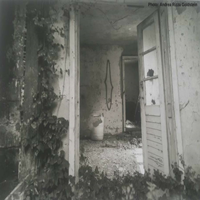Sentences for rape of Roma women from Skočić too mild

The Belgrade Court of Appeal rendered a third-instance verdict that reduced the sentences on members of the “Sima’s Chetniks” unit – Tomislav Gavrić, Zoran Đurđević and Zoran Alić – for the inhumane treatment, rape and sexual abuse of three Roma women in the village of Skočić during the second half of 1992. The HLC considers that the policy of lowering the penalty pursued by the courts in Serbia does not lead to just punishment and non-repetition of crimes, nor to justice or compassion for and solidarity with the suffering and pain of war crimes victims.
On July 2018, the Belgrade Court of Appeal issued a verdict confirming the acquittal of members of the “Sima’s Chetniks” unit for the demolition of the mosque and the killing of 27 Roma civilians in the village of Skočić in July 1992, whilst, in relation to the accused Zoran Đurđević and Tomislav Gavrić, it sentenced them to 10 years in prison, along with six years for Zoran Alić, for the inhumane treatment, violation of the physical integrity, sexual enslavement and rape of three protected witnesses. Gavrić, Đurđević and Alić appealed against this verdict to the third-instance panel of the Belgrade Court of Appeal.
Deciding on the appeals, the third-instance panel found that the second-instance court did not take into account adequately the mitigating circumstances in favour of Đurđević, Gavrić and Alić in assessing the punishment. For this reason, the third-instance panel again assessed the existence of mitigating circumstances in favour of the convicts. Thus, as mitigating circumstances in favour of Gavrić and Đurđević, the court took into consideration their family circumstances – that they were married and had children; whilst for Zoran Alić, it was taken into account that he was underage at the time of the crimes committed in Skočić, and that he had lost his leg in the war. For these reasons, the court reduced the prison sentence to eight years in the cases of Gavrić and Đurđević, and to five years in the case of Alić.
However, what the third-instance court failed to assess as an aggravating circumstance in the case of Zoran Đurđević is that, in addition to thefts and robbery (which were assessed as aggravating circumstances), he had also been convicted for the war crime committed in Bijeljina in mid-June 1992, when he sexually humiliated and raped two Bosniaks, for which he was sentenced to 13 years in prison. It is paradoxical that the Appellate Court in the case of Đurđević did not consider as an aggravating circumstance the fact that the crime in Skočić was committed only a month after he had committed the same crime in Bijeljina. In addition to committing the same criminal offence, Đurđević repeated the form of its execution – rape and sexual enslavement. For this reason, it is unclear why the Court of Appeal failed to find as an aggravating circumstance Đurđević’s conviction for this other war crime.
Also, it is unclear why only six years ago the Court of Appeal upheld Đurđević’s sentence of 13 years in prison for the sexual humiliation and rape of two Bosniaks in Bijeljina, but now, for the several months of rape and sexual humiliation to which he subjected three Roma women in Skočić, he has been sentenced for a period of only eight years.
Considering that Gavrić, Đurđević and Alić were sentenced for inhumane treatment, rape and sexual violence that lasted for several months, while expressing their utmost lack of remorse that two of the three victims were minors at the time, and that the victims still suffer severe physical and mental illnesses as the consequences of this crime, the HLC considers that the sentences the Court of Appeal pronounced on the accused were too mild, and failed to achieve the purpose of criminal punishment, which is that it be proportionate to the crime committed.
For years, the HLC has pointed to the inadequate and mild punishment policy and excessive tolerance of the courts in assessing the existence of mitigating circumstances in favour of the accused, and has been arguing that the courts in Serbia direct excessive attention to the existence of mitigating circumstances which can in some way offer amnesty to the perpetrators for the crimes committed.
What is more, since the crime in Skočić is the only one that has been prosecuted before a domestic court for crimes committed against Roma, and because not one member of the “Sima’s Chetniks” unit has been convicted of killing Roma in Skočić, and because the Court of Appeal has developed criteria based on a more rigid interpretation of the legal provisions regulating the notion of co-perpetration, and because it has imposed punishments for several months of sexual violence and rape against Roma women milder than the punishments imposed for crimes against members of other nations, it is our impression that the institutions responsible for the prosecution of war crimes in Serbia are not interested in investigating and prosecuting the crimes committed against Roma during the conflict in the territory of the former Yugoslavia. This demonstrates that, in addition to displaying a lack of the most elementary sympathy towards the victims, the institutions of Serbia also clearly discriminate against Roma people.







